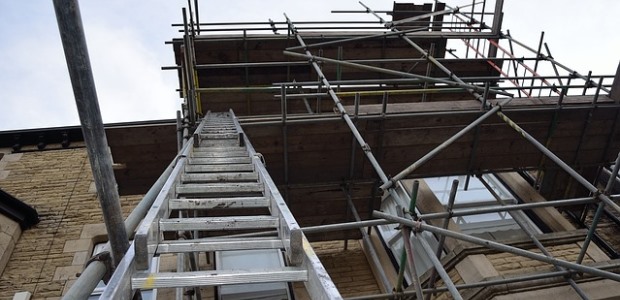
HSE Sounds Alarm About Construction Hazards
The agency's inspectors served more than 200 stop work notices during a month-long inspection initiative. The most common failure they found was employers' not providing basic safety measures for employees working at height -- 42 percent of all enforcement notices served cited this.
Britain's Health and Safety Executive sounded the alarm to the country's construction industry employers on Nov. 12, saying they should take extra measures after HSE's month-long inspection initiative found 40 percent of sites failing to properly protect workers. "Unacceptable conditions and dangerous practices were found at nearly half of the 1,748 repair and refurbishment sites visited by HSE inspectors, with 1 in 5 sites so poor, formal enforcement action was required. Many of the issues found could have been easily prevented with simple, straightforward management and planning," the agency announced.
Its inspection blitz focused on health risks. HSE said 35 percent of the notices served by inspectors were for issues such as management of asbestos; failure to control exposure to harmful dusts, noise, and vibration; and insufficient welfare. However, the most common failure they found was employers' not providing basic safety measures for employees working at height -- 42 percent of all enforcement notices served cited this.
"These results show that whilst the majority of employers in the refurbishment sector are getting it right, a significant part of the industry is seriously failing its workers," HSE Chief of Construction Philip White said. "The inability to properly plan working at height continues to be a major issue, despite well-known safety measures being straightforward to implement. It is just not acceptable that inspectors had to order work to stop immediately on over 200 occasions because of dangerous practices. We also find health is often overlooked as its implications are not immediately visible, however, the effects of uncontrolled exposure to deadly dusts such as asbestos and silica can be irreversible. We urge industry to ensure the most basic of measures, such as use of protective equipment and dust suppression methods, are put in place to help protect the future health of workers."
White added, "We need to continue to educate industry through initiatives like this and encourage a change in behavior on small projects where over half the industry's fatal accidents still occur and many workers become seriously ill."